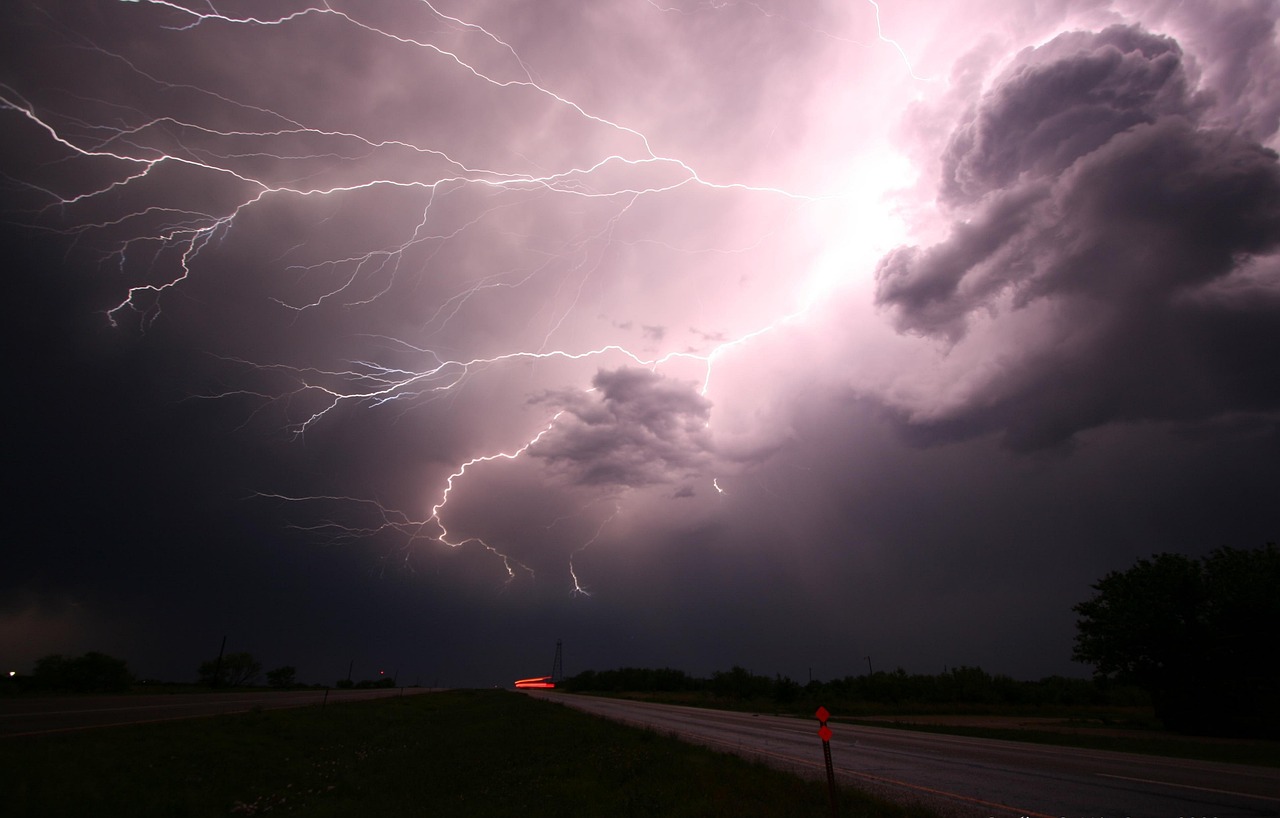Table of Contents
Antarctica, a land of extremes, holds a wealth of secrets about our planet’s climate and environmental history. At the forefront of unlocking these secrets is the renowned scientist, Igor Zotikov. With a career spanning decades and a tireless dedication to understanding the dynamics of the Antarctic ice sheet, Zotikov’s investigations have provided invaluable lessons about the Earth’s changing climate and the potential consequences of melting ice.
In the heart of Antarctica’s frigid and forbidding landscapes, Igor Zotikov has emerged as a luminary figure in the realm of polar science. His unwavering commitment to unveiling the mysteries hidden within this frozen realm has unveiled profound insights into the past, present, and future of our planet’s climate and environment.
A Polar Playground: Antarctica, often described as a polar playground for scientists, is a place of superlatives. It’s the coldest, driest, windiest, and highest continent on Earth. Yet, beneath its icy veneer lies a treasure trove of data that holds the keys to deciphering the planet’s climatic history. Zotikov’s career has been a testament to the resilience required to thrive in such extreme conditions.
An Ice-Covered Archive: Antarctica’s ice sheets, some reaching depths of several kilometers, are like a meticulously archived record of Earth’s climate. Each layer of ice contains a chronological account of the past, much like the rings of a tree. By drilling deep into this frozen archive, Zotikov and his peers have extracted invaluable data that stretches back millennia, providing a glimpse into Earth’s climatic history.
Reconstructing the Past: Zotikov’s pioneering work in analyzing ice cores from Antarctica has been instrumental in reconstructing past climates. These ice cores, comprised of countless layers of ice, harbor trace elements, isotopes, and air bubbles that encapsulate historical climatic conditions. By scrutinizing the isotopic composition, chemical traces, and gas bubbles in these cores, scientists can piece together a detailed chronicle of Earth’s climatic variations.
The Climate Connection: One of the most profound revelations stemming from Zotikov’s research is the direct link between Antarctic ice cores and global climate dynamics. By analyzing the composition of gases like carbon dioxide and methane in the ancient air bubbles, scientists have identified patterns that correlate with global temperature changes. This evidence has significantly contributed to our understanding of anthropogenic climate change.
Environmental Sentinel: Antarctica, as a sentinel of environmental change, is acutely impacted by global warming. As temperatures rise, ice sheets are melting at an accelerated rate, contributing to rising sea levels. Zotikov’s work underscores the urgency of addressing climate change and its potential repercussions on coastal communities worldwide.
Scientific Legacy: Zotikov’s enduring legacy lies not only in the data he collected but also in the inspiration he has provided to future generations of scientists. His dedication to unraveling the secrets of Antarctica’s ice sheets serves as a beacon for those committed to safeguarding our planet’s environmental future.
Global Implications: The findings from Zotikov’s research extend far beyond Antarctica’s frozen expanse. They have global implications, influencing policy decisions and prompting collective action to mitigate climate change. His work has underscored the interconnectedness of Earth’s climate systems and the shared responsibility to protect our planet.
In sum, Igor Zotikov’s contributions to Antarctic science have been a testament to human curiosity, resilience, and the pursuit of knowledge. His career stands as a shining example of the profound insights that can be gleaned from Earth’s extreme environments, and the imperative to heed the lessons they offer as we grapple with the challenges of a changing climate.
Explore this link for a more extensive examination of the topic: The Kolka-Karmadon rock/ice slide of 20 September 2002: an …
The Icy Giant: Antarctica’s Ice Sheet
Antarctica boasts the largest ice sheet on Earth, covering an area roughly equivalent to the United States and Mexico combined. This massive ice sheet contains about 60% of the world’s fresh water, locked in glaciers and ice shelves. Understanding its behavior is crucial for predicting future sea-level rise and comprehending the intricacies of our planet’s climate system.
Igor Zotikov’s fascination with Antarctica’s ice sheet dynamics led him to embark on numerous expeditions to the frozen continent. His goal was to unravel the complex processes governing the flow and stability of this colossal ice sheet, and in doing so, provide critical insights into the broader context of climate change.
Explore this link for a more extensive examination of the topic: Satellite Image Atlas of Glaciers of the World–State of the Earth’s …

The Dance of Ice and Climate
Antarctica’s ice sheet dynamics are intimately linked to climate. Changes in temperature and atmospheric conditions can influence the flow of ice, affecting the delicate balance between ice accumulation and loss. Understanding this dance between ice and climate is essential for making accurate predictions about future sea-level rise, which has far-reaching implications for coastal communities worldwide.
Zotikov’s investigations involved a range of techniques, from satellite observations to on-the-ground measurements. Through these methods, he and his team were able to monitor the movement of ice and the behavior of ice shelves, providing valuable data for climate models. These models simulate the interactions between ice, ocean, and atmosphere, helping researchers forecast how the Antarctic ice sheet may respond to ongoing climate change.
Looking for more insights? You’ll find them right here in our extended coverage: ICE MAN – THE LIFE AND TIMES OF A COWBOY SCIENTIST …

Lessons from the Ice
Igor Zotikov’s work has yielded several critical lessons about Antarctic ice sheet dynamics:
Igor Zotikov’s pioneering research has uncovered a wealth of critical lessons about the intricate and dynamic nature of Antarctica’s ice sheets. These profound insights not only advance our understanding of this remote and enigmatic region but also hold broader implications for our comprehension of global climate systems.
First and foremost, Zotikov’s work has elucidated the staggering scale and complexity of Antarctic ice sheet dynamics. Through meticulous observation and analysis, he has unveiled the astounding power and variability of ice movement, shedding light on the factors driving these changes. These lessons underscore the urgency of monitoring and comprehending ice sheet dynamics in a rapidly warming world.
Furthermore, Zotikov’s research has highlighted the interconnectedness of Antarctica’s ice with the rest of the Earth’s climate system. His findings emphasize the intricate feedback loops and cascading effects that can result from even subtle changes in the ice sheets. These lessons emphasize the need for a holistic approach to climate research, one that considers the far-reaching consequences of Antarctic ice dynamics on global sea level rise, ocean circulation, and climate patterns.
Additionally, Zotikov’s work underscores the importance of long-term, sustained monitoring efforts in Antarctica. The continent’s vast size and extreme conditions make it a challenging environment for scientific research. However, his dedication to collecting data over extended periods has allowed for the detection of subtle trends and patterns that would have otherwise gone unnoticed. These lessons remind us of the value of persistence and patience in scientific inquiry.
In sum, Igor Zotikov’s work transcends the boundaries of Antarctic science, offering profound lessons that resonate with our broader understanding of climate dynamics and change. His research serves as a testament to the vital role of scientific curiosity and rigor in addressing the urgent challenges posed by climate change and its impacts on our planet.
For additional details, consider exploring the related content available here IPY Science Program

Sensitivity to Climate
Zotikov’s research has shown that the Antarctic ice sheet is highly sensitive to changes in temperature and atmospheric conditions. Even subtle shifts in climate can have a profound impact on ice flow and mass loss.
“Zotikov’s groundbreaking research has unveiled a fundamental truth about the Antarctic ice sheet: its remarkable sensitivity to the ever-changing dynamics of our planet’s climate. Within this frozen expanse lies a delicate balance that responds, with astonishing precision, to even the subtlest shifts in temperature and atmospheric conditions. Here, we delve deeper into the profound implications of Zotikov’s findings:
A Thermometer of Change: The Antarctic ice sheet is more than a passive entity; it is an active participant in Earth’s climate system. Zotikov’s work has illuminated how this vast ice expanse serves as a sensitive thermometer of environmental change. Even the smallest upticks in temperature send ripples through the ice, setting off a chain reaction of shifts in ice flow and mass.
Unmasking Climate Signals: The ice sheet’s responsiveness to climate change provides researchers with a unique opportunity to unmask the hidden signals embedded within its layers. These signals offer glimpses into the past, revealing past climate fluctuations and providing critical data for understanding how our planet has responded to natural climate variations.
Accelerating Feedback Loops: Zotikov’s research underscores the existence of accelerating feedback loops within the Antarctic ice sheet. As temperatures rise, the ice sheet’s response can intensify, potentially leading to accelerated ice melt and sea-level rise. This insight is vital for refining global climate models and predicting future changes in sea levels with greater accuracy.
Sea-Level Impact: Perhaps the most far-reaching implication of Zotikov’s work lies in its connection to sea-level rise. The Antarctic ice sheet contains enough freshwater to significantly influence global sea levels. Understanding how it reacts to climate change is essential for assessing the potential risks and impacts on coastal communities worldwide.
Global Climate Modeling: Zotikov’s findings have become a cornerstone in the development and refinement of global climate models. By integrating the ice sheet’s sensitivity into these models, scientists can better simulate future climate scenarios and make more informed predictions about the consequences of a warming world.
Urgent Call for Action: In shedding light on the Antarctic ice sheet’s vulnerability, Zotikov’s research serves as an urgent call to action. It highlights the critical importance of mitigating climate change to prevent irreversible damage to our planet’s ice reservoirs and the subsequent threat to coastal regions.
In conclusion, Igor Zotikov’s pioneering research has unveiled a pivotal aspect of our planet’s climate system: the exquisite sensitivity of the Antarctic ice sheet to environmental change. This sensitivity not only deepens our understanding of Earth’s past but also underscores the urgency of addressing climate change in the present. As we continue to grapple with the complex challenges of a changing world, Zotikov’s work serves as a beacon of insight, guiding our efforts to safeguard the delicate balance of our planet’s icy realms.”
Don’t stop here; you can continue your exploration by following this link for more details: The Kolka-Karmadon rock/ice slide of 20 September 2002: an …

Accelerated Melting
Through his investigations, Zotikov has contributed to the growing body of evidence indicating that some parts of the Antarctic ice sheet are experiencing accelerated melting and thinning. This has raised concerns about the potential for rapid sea-level rise in the coming decades.
Through his diligent investigations, Zotikov has significantly advanced our understanding of the Antarctic ice sheet’s behavior. His contributions have added substantial weight to the growing body of evidence that suggests certain regions of the Antarctic ice sheet are undergoing accelerated melting and thinning. These findings are not merely scientific curiosities; they carry profound implications for our planet’s future.
1. Alarming Trends in Antarctica: Zotikov’s work underscores the urgency of addressing alarming trends in Antarctica. The evidence of accelerated melting and thinning in some areas serves as a red flag, signaling the vulnerability of the continent’s ice. This vulnerability is a stark reminder of the profound changes occurring in response to global warming.
2. Rising Concerns about Sea-Level Rise: One of the most immediate and pressing concerns arising from Zotikov’s findings is the potential for rapid sea-level rise. As Antarctic ice melts and contributes freshwater to the oceans, it has the potential to disrupt established climate patterns and accelerate sea-level rise, threatening coastal communities and ecosystems worldwide.
3. Implications for Climate Models: Zotikov’s research has important implications for climate models. It challenges existing models and calls for a reassessment of our understanding of ice dynamics in a warming world. Incorporating these new insights into climate models is crucial for more accurate predictions of future sea-level rise and climate impacts.
4. Interdisciplinary Collaboration: Addressing the complex challenges posed by Antarctica’s changing ice dynamics requires interdisciplinary collaboration. Zotikov’s work exemplifies the importance of scientists from various fields coming together to pool their expertise and tackle pressing issues related to climate change, ice dynamics, and sea-level rise.
5. Mitigation and Adaptation: The evidence of accelerated ice melting in Antarctica serves as a clarion call for proactive measures. It underscores the urgency of mitigation efforts to reduce greenhouse gas emissions and slow the pace of global warming. Simultaneously, it emphasizes the importance of adaptation strategies to prepare for and mitigate the impacts of sea-level rise on vulnerable coastal areas.
6. Global Climate Responsibility: Zotikov’s research places global climate responsibility at the forefront. It reminds us that climate change is a global challenge that requires collective action. Addressing the fate of Antarctica’s ice sheet is not solely the responsibility of scientists; it’s a shared responsibility for governments, industries, and individuals around the world.
In conclusion, Igor Zotikov’s work in Antarctica is a testament to the critical role of scientific inquiry in shedding light on the complex and urgent challenges of our time. His findings regarding accelerated ice melting and thinning in the Antarctic ice sheet serve as a stark reminder of the consequences of global warming. They call for immediate action, collaboration, and a renewed commitment to understanding and addressing the impacts of climate change on our planet’s delicate balance.
For additional details, consider exploring the related content available here A 60-year international history of Antarctic subglacial lake exploration

Global Implications
The lessons from Zotikov’s work extend far beyond Antarctica’s icy shores. They underscore the global significance of Antarctic ice sheet dynamics and their role in shaping the future of our planet’s coastlines and climate.
Zotikov’s pioneering work in understanding Antarctic ice sheet dynamics carries profound implications that ripple across the globe. Beyond the pristine expanses of Antarctica, his research holds a mirror to our planet’s future, especially when it comes to the fate of coastlines and the climate.
Global Sea Level Impact: One of the most far-reaching consequences of melting Antarctic ice is the potential for rising sea levels worldwide. As Antarctic ice sheets lose mass, they contribute to the gradual encroachment of seawater onto coastal areas, posing significant risks to densely populated regions. Zotikov’s findings serve as a wake-up call, emphasizing the urgency of addressing climate change and its repercussions for coastal communities globally.
Climate Feedback Loops: Zotikov’s work also sheds light on the intricate climate feedback loops at play in Antarctica. The melting of ice sheets not only contributes to sea-level rise but can also influence regional and global weather patterns. Understanding these feedback mechanisms is crucial for accurately predicting and mitigating the impacts of climate change across the planet.
Interconnected Ecosystems: Antarctica’s unique ecosystems are intricately connected to the surrounding oceans and have a far-reaching influence on marine life worldwide. As the ice melts, it disrupts these ecosystems, affecting everything from krill populations to marine mammals. The consequences of these disruptions extend to fisheries and food chains that sustain communities far beyond Antarctica’s frigid waters.
Global Climate System: Antarctica acts as a climate regulator for the planet. Changes in its ice dynamics can set off a chain reaction of climatic shifts. Zotikov’s research underscores the vulnerability of this delicate balance and emphasizes the need for global cooperation in addressing climate change.
International Collaboration: The study of Antarctic ice sheets necessitates international collaboration and cooperation. Scientists from around the world work together to gather data, share findings, and develop strategies for climate mitigation. Zotikov’s work serves as a testament to the power of global teamwork in confronting planetary challenges.
Hope for Solutions: While the consequences of melting ice sheets are concerning, Zotikov’s work offers hope by providing crucial data that informs climate models and helps us understand the intricacies of our planet’s climate system. Armed with this knowledge, scientists and policymakers can work together to develop strategies for mitigating the impacts of climate change and protecting our planet’s future.
In summary, the lessons derived from Igor Zotikov’s pioneering research reach far beyond the frozen expanse of Antarctica. They remind us that the fate of Antarctica’s ice sheets is intertwined with the future of our planet’s coastlines, climate, and ecosystems. As we navigate the challenges of a changing world, Zotikov’s work serves as a beacon, guiding us toward informed decisions and collective action to safeguard our planet for generations to come.
Should you desire more in-depth information, it’s available for your perusal on this page: A 60-year international history of Antarctic subglacial lake …

A Legacy of Scientific Inquiry
Igor Zotikov’s investigations into Antarctic ice sheet dynamics represent a profound legacy of scientific inquiry. His work serves as a reminder of the importance of understanding Earth’s dynamic systems and the consequences of climate change. As we grapple with the challenges of a changing climate, Zotikov’s lessons provide valuable guidance for policymakers, researchers, and communities around the world.
Igor Zotikov’s dedicated investigations into the intricate dynamics of the Antarctic ice sheets are nothing short of a scientific odyssey. His enduring legacy of research stands as a beacon of illumination in our quest to comprehend the complex tapestry of Earth’s climate systems. Beyond the frigid expanse of Antarctica, Zotikov’s work resonates as a global call to action, emphasizing the urgency of understanding the ever-evolving interplay of nature and climate change.
In the face of our planet’s rapidly shifting climate, Zotikov’s contributions assume profound significance. His meticulous studies have unearthed critical insights into the past, present, and future of Antarctica’s ice, illuminating the potential repercussions of climate change on a planetary scale. As the world grapples with the consequences of rising temperatures and melting ice, his research serves as a stark reminder of the consequences we face and the urgency with which we must act.
The lessons derived from Zotikov’s tireless endeavors transcend the boundaries of science; they carry profound implications for policymakers, researchers, and communities worldwide. They underscore the imperative of fostering sustainable practices, mitigating carbon emissions, and safeguarding the delicate balance of our planet. In the corridors of power, his research informs critical decisions, urging leaders to prioritize the preservation of our environment for future generations.
Moreover, Igor Zotikov’s legacy is a testament to the enduring spirit of scientific inquiry. It embodies the relentless pursuit of knowledge that defines humanity’s quest to understand and adapt to the world around us. His work inspires the next generation of researchers, instilling in them the importance of pushing the boundaries of human understanding and the profound impact it can have on the world.
In sum, Igor Zotikov’s remarkable contributions to Antarctic ice studies resonate as a vital clarion call in our era of climate uncertainty. His legacy compels us to confront the challenges of a changing world with steadfast determination and to work collectively to mitigate the effects of climate change. As we stand at this critical juncture in our planet’s history, Zotikov’s lessons remind us that our choices today will shape the future of our planet for generations to come.
Explore this link for a more extensive examination of the topic: ICE MAN – THE LIFE AND TIMES OF A COWBOY SCIENTIST …

In honoring his contributions, we recognize the power of dedicated individuals like Igor Zotikov to advance our knowledge and inspire collective action. The lessons from his investigations into Antarctica’s ice sheet dynamics will continue to inform our understanding of climate change and the critical need to protect our planet for future generations.
In honoring his contributions, we recognize the power of dedicated individuals like Igor Zotikov to advance our knowledge and inspire collective action. Zotikov’s life and work exemplify the profound impact that one person can have on the world when fueled by relentless curiosity and a commitment to the greater good. His legacy is a testament to the capacity of human dedication to drive progress in the face of the most challenging and inhospitable environments on Earth.
A Catalyst for Change: Igor Zotikov’s work in Antarctica underscores the urgency of addressing climate change and environmental preservation. His research serves as a stark reminder that the consequences of our actions are inscribed in the very ice sheets he studied. As we honor his contributions, we are compelled to take action to mitigate the impacts of climate change and safeguard the fragile ecosystems of Antarctica and beyond.
Informing Climate Policy: The lessons gleaned from Zotikov’s investigations into Antarctica’s ice sheet dynamics are invaluable in shaping climate policy and environmental stewardship. His findings provide concrete evidence of the Earth’s vulnerability to human-induced changes and emphasize the need for swift and decisive action. They reinforce the scientific consensus that global warming is a reality and that mitigating its effects requires international cooperation and responsible environmental practices.
Inspiration for Future Generations: Igor Zotikov’s legacy transcends the scientific community; it serves as an enduring source of inspiration for future generations. His unwavering dedication to exploration, discovery, and the pursuit of truth serves as a beacon for young scientists and adventurers. His story reminds them that the pursuit of knowledge is a noble endeavor, one that can lead to discoveries that shape the course of history.
A Call to Preserve Our Planet: Zotikov’s work underscores the critical need to protect our planet for future generations. The lessons he leaves us with are not just scientific data but a moral imperative. They compel us to reduce carbon emissions, conserve natural resources, and preserve the delicate balance of Earth’s ecosystems. In doing so, we honor not only his memory but also our responsibility to safeguard the world we share.
In conclusion, as we pay tribute to Igor Zotikov and his monumental contributions to our understanding of climate change and Antarctica’s environmental history, we are reminded of our collective duty to act. We must heed the lessons of his work and recognize that the fate of our planet lies in our hands. By honoring his legacy, we honor our commitment to future generations, pledging to leave them a world that is healthier, more sustainable, and more resilient in the face of the environmental challenges that lie ahead.
To delve further into this matter, we encourage you to check out the additional resources provided here: A 60-year international history of Antarctic subglacial lake exploration
More links
You can also read more about this here: A 60-year international history of Antarctic subglacial lake …
